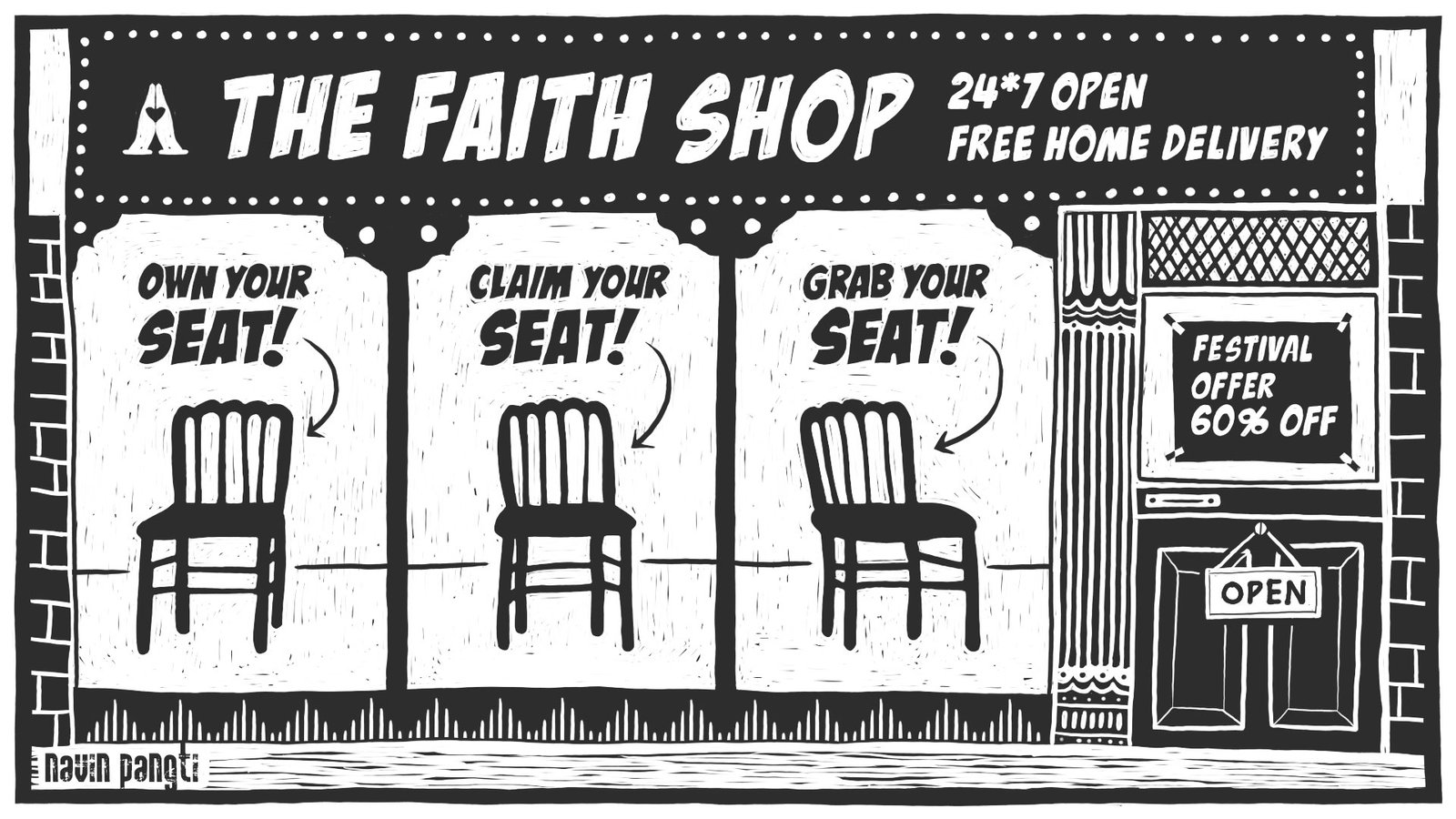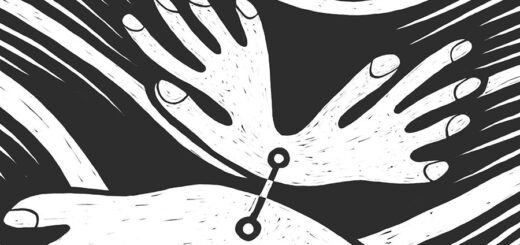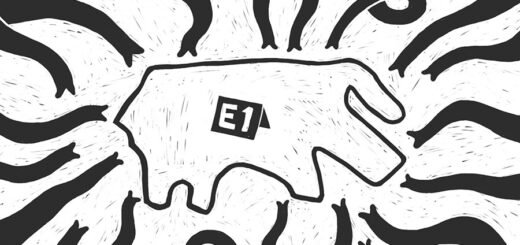The business of faith
Faith is many things to many people. Faith is the elixir that keeps the ball of humanity in motion. Faith is God. Faith can move mountains. Faith can split the sea. Faith is belief. Faith is also a notion.
Faith is the most powerful tool accessible to humans. Faith also comes across as one of our biggest weakness. No wonder we constantly seek support and validation for our faith. It takes great courage to maintain faith sans external validation.
Technically speaking, life, as one understands it, is itself a matter of faith. Literally every social construct is a matter of faith, fuelled by the ideas of purpose, ethics and morality, which in turn are derivatives of faith. Ideally faith is a personal matter but it has evolved to become a fused identity of person and group. The closest noun that defines such a group is called religion.

Various religions and their cheerleaders manifest and exert themselves in different ways. On one hand we have fanatics who display and exert hate, willing to kill or get killed to ‘save’ the faith – seeking victory in pain and death. On the other had we have volunteers who work with a missionary zeal to enlighten the world – discretely or recklessly. Both of these kinds seem to act with business like dedication and precision with the sole objective of converting the faithless into a faithful.
My first confrontation with the business model was in New Delhi. It was late nineties when our cook was offered an attractive remuneration for converting his faith. This included immediate cash bonus and a regular job. He was introduced to some boys who were enjoying the benefits of change. He asked me what he should do. While I refrained from making any suggestions, I did wonder about the benefits of taking or ignoring the offer.
He chose not to take the offer. But his married friend who lived in Assam, whom I personally knew, took the offer because he was promised that the ‘new’ God will help his become a father. The possibility of having a child and the cash reward for buying that possibility was a fairly good deal. I was told that one could also negotiate with multiple parties for getting a better deal. The new ‘God’ did not gift him a child but he is not complaining. His complaints have already been paid for.
While these acts were transactional, I had witnessed marketing activities many years ago, as a high school student. During my high school days the only source of ‘thought for the day’ and ‘moral science’ classes came from a holy book called Bible. During our moral science classes, we sometimes visited the old age home associated with school. The poor and helpless old people were taken care of at this neat and clean hostel where every wall and bed side table was adored with a holy cross. As a young adult, I wondered what these helpless people thought about the cross. I wondered if they felt grateful or merely lucky. I also wondered if they had any senses left to have a valid response.
Many a times, during our moral science classes, we were taken to the church to pray. We were told that we could pray to ‘our’ respective Gods and that our prayer would still be heard because ‘God’ is everywhere. The inherent contradiction of the statement puzzled many of us. And we wondered why no alternatives were provided to the atheist and agnostics.
The examples shared above may suggest that I am talking about one religion alone but frankly it does not matter. Just replace the noun and you will find that it is a common use case. I share these experiences because they were my first brush with the business of faith. It is not that one has not ‘prayed’ in front of goddess dressed in pure white, seated on a white lotus, or has not sung hymns in a language which one does not understand. As a child we are often forced to take holy dips in different rivers of faith.
The last religious congregation I attended was during the intermediate. Thankfully it was ‘secular’ so the religious aftertaste of schooling turned out to be OK. Unlike other schools we had a prayer book containing a diversity of prayers. Instead of standing up, we sat on chairs while singing or narrating the prayers in unison. There were prayers in Sanskrit from ancient Hindu texts, there were prayers based on words of Rabindranath Tagore, but what many of us really liked was the Friday prayer – lab pe aati hai dua ban ke tammana meri, zindagi shamma key surat ho khudaya meri – roughly translated as – “My heartiest desire is on my lips, as a prayer, as I ask thee to make me a candle, a guiding light”. I think that the reason we liked it was that it sounded like a ghazal and had interesting tonal variations. The only downside was its compulsion to be a friday prayer.
My most hilarious and overzealous experience was at Jamali Kamali near Qutub Minar where I met a small group of people who claimed to be Muslim clerics. They started telling me, or selling me, something really bizarre. They claimed that Quran is actually derived from the Vedas hence I should read it. They were randomly quoting stuff which one could not authenticate. This new discovery was shocking. So many salesmen, selling so many things in so many ways!
While the salesmen of faith come in all shapes, sizes and colours, what is common is their sheer dedication. There is so much of belief in the product that one does not need an advertising agency to write a copy. Virtually every salesman is innovating and improvising on run time. They end up exploring and using every possible sales tool. This includes good intentions, good deeds, gurus, culture, tradition, music, literature, hate, history re-check, history re-write, solidarity… and the most important of them all – hope and fear! The party that started on the noah’s, sorry manu’s ark is very much alive and rocking.
This thing called faith is so damn potent that even the communists use it. Technically, they do not believe in idea of God but ‘idolise’ Marx, Lenin, Mao… and in their name, they spread their faith. While doing so they have probably managed to silence far more voices than the religious zealots. They claim that their intentions are good. But isn’t that true for every faith? How does one measure and compare intentions? Especially when one is willing to deploy every trick of the trade to propagate the ‘good’ intentions? No wonder, the path to heaven, or hell, is paved with good intentions!
As of today, it is hard to say whether the impact of traditional faith systems is on the rise or fall. It seems to be rising and falling at the same time. What one can also see clearly is that newer faith systems are coming to the fore, including the holy cow called science and the wild bull called economics & development, each seeking its own share. Cumulatively, the situation seems to be getting worse every day. The business of faith is thriving!















A really practical take on the concept. It is actually just a notion. Rest is competitive packaging.